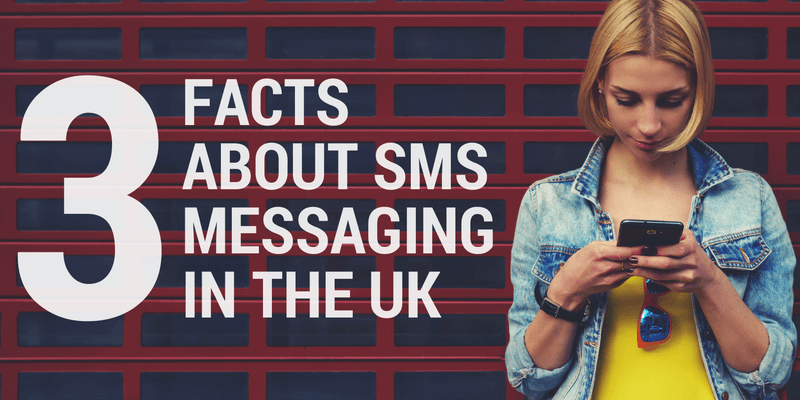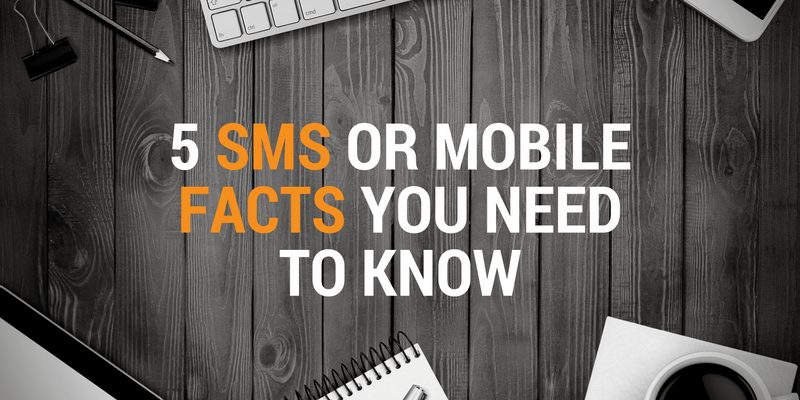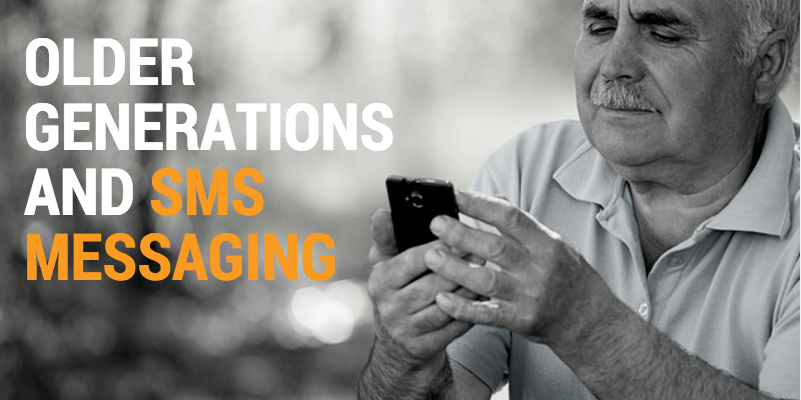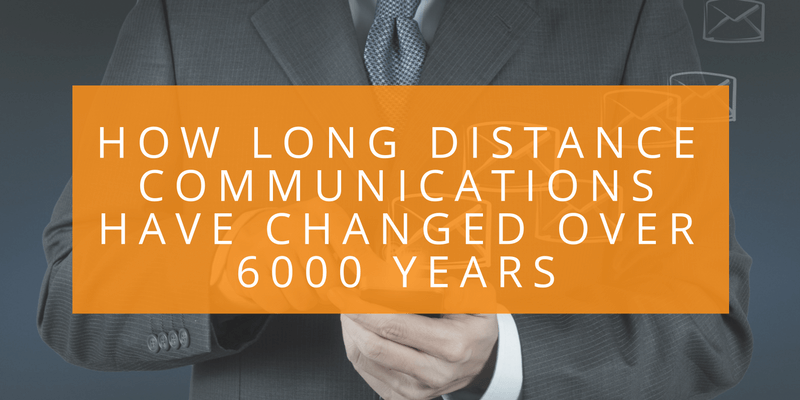3 Facts about SMS Messaging in the UK

How do people really feel about SMS messaging? Do they prefer using apps instead of “regular” text messaging? Thanks to the Mobile Ecosystem Forum (MEF) we can answer those questions, and others too. Their Mobile Messaging Report 2016 surveyed people around the world about their preferences for messaging, and communicating in general.
I’ve pulled out three facts from the UK responses that I thought were instructive for anyone wanting to communicate with consumers within the country.
Apps vs. SMS
There have been so many headlines this year about messaging apps overtaking SMS. And it’s true that the number of messages sent over “OTT”, or over-the-top, apps is more than traditional SMS. But any assessment that SMS is passé based on that fact is incorrect.
As you can see in the chart below, the two most preferred ways to send messages in the UK (and globally) are Facebook and WhatsApp. But SMS comes in a very strong third, and dominates over the remaining choices.
This is particularly good for anyone who uses SMS in the UK. It means that a strong percentage of the population has an affinity for it, even though the other messaging apps are also very popular. In fact, the UK has the second strongest preference for SMS in Europe and North America. Only France is higher, where SMS is the most popular at 70%.
Other countries that are considered “mobile first” also have a strong preference for SMS that is close to the OTT message apps. For example, Nigeria has a 61% preference for SMS, and a 62% for Facebook. [Note: People taking the survey could select more than one messaging service, so the percentages don’t add up to 100].
The main takeaway from this data is that SMS is still popular. Even though it ranks third, it’s still one of the better messaging services to use. The report also argues that people now prefer to use the OTT apps for person-to-person messaging. How they feel about communicating with brands is different though. But that’s the topic of my next blog, so be sure to look for it.
Now, How People REALLY Feel About SMS
So, given the chart from the above section, I’d guess you could think people trust Facebook or WhatsApp. After all, they use them more don’t they?
If you did think that, then you’d be wrong. When people were asked which message service they trusted most, SMS won hands down.
What’s also interesting in this data is that the trust in a company app is so low. I’m not surprised that Facebook trust was low because they’ve had so many privacy issues. Same goes for Yahoo and Skype (being a Microsoft brand now).
Of course, the survey didn’t exactly define the word trust. It could have been interpreted differently by everyone, but the sentiment is clear: SMS is the most trusted messaging channel.
Good News About Spam
In some countries SMS spam is a big problem. It’s bad enough in India and Nigeria that people don’t even bother to read their SMS messages anymore – at least not right when they get them like most everyone else does.
What do people do when they get spam messages? In most countries, most people just delete them or otherwise ignore them. But the UK is different.
The majority of Brits report spam when they get it. The MEF report says it’s because of the “mature regulatory sector”. That might be it. Or perhaps spammers just won’t be tolerated anywhere in the UK. Reporting it is super easy too, which certainly helps.
One could argue that the US regulatory sector is even more “mature” given its rules are much stricter than here. But I know that reporting spam, especially SMS spam, in the US is not as simple as it is in the UK.
But whatever the reason, the practice of reporting is a good thing. We should all hope it continues and our messages remain mostly spam-free.
Considering all these facts, the future certainly looks bright for SMS messaging. Do you agree?
Related Articles
Do People Send Christmas Wishes via SMS?
It’s the time of year when we wish friends and family Merry Christmas and a Happy New Year. But how will you send your greetings? Should you be traditional and send a card, or follow the new trend using SMS messaging? This blog can help you decide.
Consumers Prefer SMS Over Mobile Apps
Earlier this month I attended an online webinar session covering topics related to SMS. One of the presenters produced some interesting statistics. I wanted to know more, so I went to the original source and found some great news for everyone using SMS as a key part of their mobile strategy.
Have IM Apps Made SMS Messaging Irrelevant?
Earlier this year there was big news. WhatsApp users were sending more messages each day than SMS users were sending. According to the Telegraph, WhatsApp was 50% more popular than SMS messaging. And the truth is the number of SMS messages sent each day has declined over the last few years. In the UK it was down almost 25% from 2012 to 2013. But is that the whole picture?
Do Your Customers Want Emoji in their SMS Messages?
Emoji are showing up everywhere. Should you be using these cute, fun, and illustrative icons in your SMS marketing? Your customers probably want you to. Around 72% of people have positive feelings about brands who use emoji. But before you get started, you’ll want to find out the details in this blog.
Proof SMS Messaging Gets Results: Increase Sales
Can SMS marketing increase sales numbers? In the next entry of our Results Series you’ll see the kinds of results that real companies achieved. We’ve rounded up sales numbers and timelines to show you how well, and how fast, SMS marketing can improve your sales.
5 SMS or Mobile Facts You Need to Know
So many of us are used to having our mobiles around nearly 24 hours a day that it’s easy to forget it’s still a growing industry. And though SMS has been around for over two decades, the ways we use it and people’s willingness to use it continues to grow. So for this blog I picked out five facts about mobile and SMS that really make the case that SMS for business has come of age. Let’s see if you agree.
5 Amazing SMS Statistics from Salesforce
Every year Salesforce releases its State of Marketing report. It offers insight into how marketers use and see the various tools and channels available today. In the 2016 report, much of the content focused on social and email, but also included a good deal of information on mobile marketing too.
Why Your Startup Needs to be Using SMS Marketing
Are startups afraid of using SMS marketing? Is it because they’re afraid of annoying customers and breaking the regulations? I don’t think so. If your startup isn’t using SMS marketing already, it’s probably because you don’t know all the facts. Find out why SMS is actually perfect for startups.
Older Generations and SMS Messaging
50% of people between 55 and 64 own a smartphone and 18% of people over 65 do too. If you’re trying to reach out to these older demographics, it might be time to consider mobile marketing. But what kind should you choose?
SMS Messaging is Much Better Than Shouting!
Just in the last 60-70 years, communications have gone from requiring a person to route the calls to not needing anyone other than the two people at either end. It all got me wondering about the history of communications and how much different it is from even just a 100 years ago, or a thousand. The result of my wondering is this infographic that covers most of recorded history (at some level of detail anyway).












